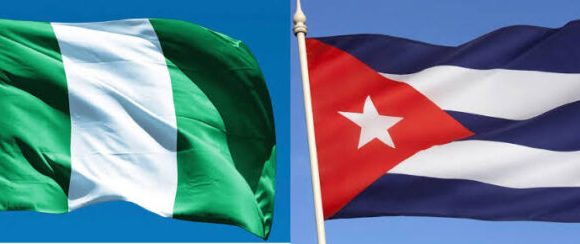Environmental Rights and the Nigerian Government’s Ineptitude

The State SHALL protect and improve the environment and safeguard the water, air, land, forest and wildlife in Nigeria, remains the provisions of Section 20 of the Nigerian 1999 Constitution (as amended).
Despite being part of Chapter 2 of the constitution which is regarded as not justiciable and generally not enforceable by virtue of Section 6 (6) (c) of the same Constitution and plethora of judicial pronouncements including that of Okogie (Trustees of Roman Catholic Schools) and others v Attorney General of Lagos State in 1981,
the main objective of the above section is to ensure that the government guarantees and ensures a healthy environment for the Nigerian citizens and residents as the protection of the environment is essential for the realization and enjoyment of every other privilege or right that accrues to such citizens and residents.
Biblically, it can even be perceived that God had to ensure that a good, conducive and unpolluted environment was created for mankind even before the creation of man because without this, man might possibly not have been created.
This is as seen in the word of Genesis 1:24 – 26. The environment constitutes a basic necessity which was put in a good condition for mankind to explore, maintain and use for sustenance.
The National Environmental Standards and Regulations Enforcement Agency (Establishment) Act (NESREA Act) defined the environment to include water, air, land and all plants and human beings or animals living therein and the inter – relationships which exist among these or any of them.
It therefore follows that the existence of man and all that are connected to him cannot exist or be possible without an environment.
Pollution on the other hand is the introduction of contaminants into the natural environment that causes adverse change. A polluted environment has its effects, of course adverse effects, on the ecosystem, on the plants, on the animals and on humans.
The pollution of the environment cuts across all aspects and the vital things that are fundamental to man’s existence, the pollution of the land, the water, the air and even noise pollution.
Its effects on man are numerous that it can lead to the loose of business and means of livelihood, chronic ailments and even to death.
Human rights are rights that every human being has by virtue of his or her human dignity. Human rights are rights inherent to all human beings, they define relationships between individuals and power structures, especially the State.
Human rights delimit State power and, at the same time, require States to take positive measures ensuring an ENVIRONMENT that enables all people to enjoy their human rights.
Human rights are manifold and they pertain to all aspects of life. Their exercise enables all individuals to shape and determine their own lives in liberty, equality and respect for human dignity.
Human rights encompass civil, political, economic, social, and cultural rights, as well as the collective rights of peoples. International human rights treaties and customary law impose three obligations on States: (1) the duty to respect; (2) the duty to protect; and (3) the duty to fulfil.
While the balance between these obligations may vary according to the rights involved, they apply to all civil, political, economic, social and cultural rights.
Chapter IV of the Nigerian constitution did set out a good number of rights accruing to an individual as his or her right ranging from right to life, right to dignity of human person, right to private and family life, freedom of assembly and association as well as right to acquire and own immovable property among others.
None of the above mentioned rights can be enjoyed in a polluted environment, the assurance and guaranteeing of every other human right without an environment where such can be exercised and enjoyed is equal to a violation of all the rights.
It is in this understanding that the court have even gone ahead to decide in Jonah Gbemre v Shell Petroleum Development Company Nigeria Limited and Others that ‘’The actions of the respondents in continuing to flare gas in the course of their oil exploration and
production activities in the applicants’ community is a gross violation of their fundamental right to life (including healthy environment) and dignity of human person as enshrined in the Constitution’’. There is every need to first have a clean, healthy and livable environment before every other right can be assured.
The Nigerian government is not oblivion of its constitutionally imposed environmental duty, the effect of the international and regional treaties it is party/signatory to, rectified and its relationship with every other right of the citizens.
Haven shown that pollution can come in several ways and that in the presence of such, there is a great inhibition of human rights as the right to private and family life, right to own property, right to move and associate freely can only be possible in a society where there is no pollution of the water and its ways by indiscriminate disposal of wastes that will lead to flooding and eventual destruction of properties and rendering millions of people homeless and without families,
the right to dignity of human person, personal liberty, freedom of thought, conscience and religion can as well only take place in an environment where the air and water are both not polluted.
READ ALSO: Covid-19: Jigawa directs workers to work from home from Wednesday
The Garden city of Port-harcourt is yet to recover fully from the effect of the black soot that took over the city recently and as at then almost all the activities in the city was at a standstill, there was every need and struggle to be alive and have access to good air first before any other issue can be considered including the earlier enumerated human rights.
Recently, the Abule Ado pipeline explosion in Lagos on Sunday 15th March 2020 is another indication that the government have shown little or no concern to granting the people good and conducive environment since there is no known difference or stipulation as to areas mapped out as commercial, residential and industrial areas.
Haven established that the environment is vital for human right, and the fact that the government is doing little or nothing including the individuals in ensuring that the environment is preserved and made habitable,
it is therefore recommends that diligent, efficient and non-political effort should be made by the legislatures and the judiciary in ensuring that government is held accountable for the enforcement of Chapter II of the Constitution especially section 20.
Furthermore, individuals, corporate societies, and the several pressure groups and international companies should all rise up to the task and awareness creation of the fact that a livable environment is not a sole responsibility of the government and that every citizen must ensure that at his or her immediate environment he/she do not engage in activities that are environmentally harmful in any way.
As it is said with justice, that not only must justice be done; it must also be seen to be done so it has to be with the non-violation of human rights,
they must not only be said to be allowed and guaranteed, but all the fundamentals incidental to its full and optimal achievement including a healthy and clean environment must be made available, else all other efforts in disregard to the environmental need negates such. Human rights and its practice can only thrive in a clean and healthy environment.








